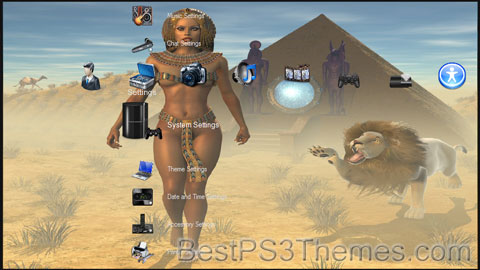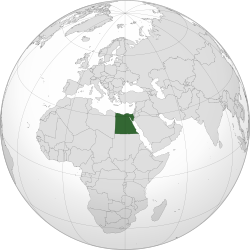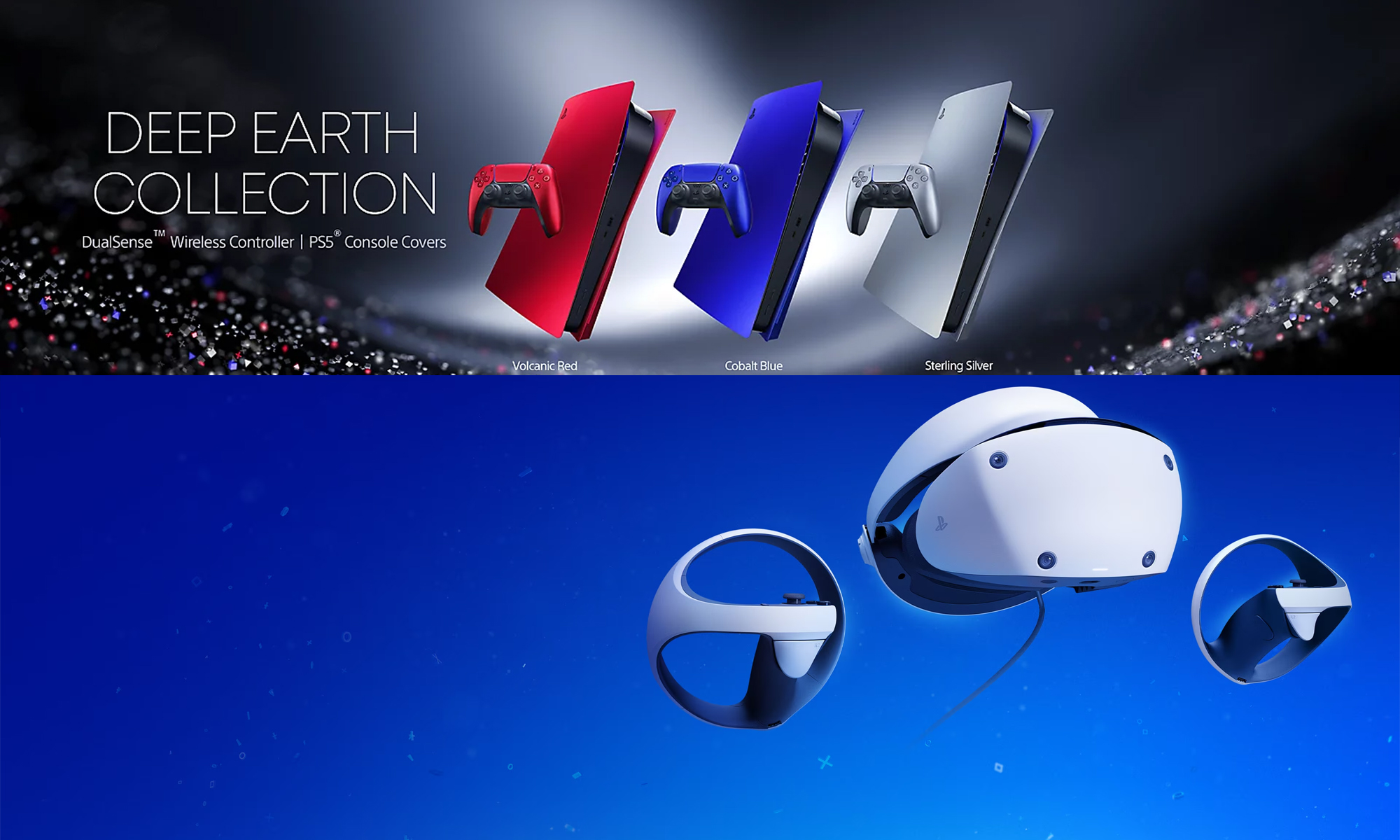Egypt theme by Sim24
Download: Egypt.p3t

(4 backgrounds)
Arab Republic of Egypt | |
|---|---|
| Anthem: "Bilady, Bilady, Bilady" "بلادي، بلادي، بلادي" (English: "My country, my country, my country") | |
 | |
| Capital and largest city | Cairo 30°2′N 31°13′E / 30.033°N 31.217°E |
| Official languages | Arabic[1] |
| National language | Egyptian Arabic[a] |
| Religion | See Religion in Egypt[b] |
| Demonym(s) | Egyptian |
| Government | Unitary semi-presidential republic under an authoritarian regime[6][7][8][9][10] |
| Abdel Fattah el-Sisi | |
| Mostafa Madbouly | |
| Legislature | Parliament |
| Senate | |
| House of Representatives | |
| Establishment | |
| c. 3150 BC | |
• Fall of Memphis | 343 BC |
| 639–642 | |
| 1171/4–1517 | |
• Muhammad Ali dynasty inaugurated | 9 July 1805[13] |
| 28 February 1922 | |
| 23 July 1952 | |
• Republic declared | 18 June 1953 |
| 18 January 2014 | |
| Area | |
• Total | 1,010,408[14][15] km2 (390,121 sq mi) (30th) |
• Water (%) | 0.632 |
| Population | |
• 2024[16] estimate | |
• 2017[17] census | |
• Density | 106.67/km2 (276.3/sq mi) (107th) |
| GDP (PPP) | 2024 estimate |
• Total | |
• Per capita | |
| GDP (nominal) | 2024 estimate |
• Total | |
• Per capita | |
| Gini (2017) | medium |
| HDI (2022) | high (105th) |
| Currency | Egyptian pound (LE/E£/£E) (EGP) |
| Time zone | UTC+2[c] (EGY) |
• Summer (DST) | UTC+3 |
| Driving side | right |
| Calling code | +20 |
| ISO 3166 code | EG |
| Internet TLD | |
Egypt (Arabic: مصر Miṣr [mesˁr], Egyptian Arabic pronunciation: [mɑsˤr]), officially the Arab Republic of Egypt, is a transcontinental country spanning the northeast corner of Africa and the Sinai Peninsula in the southwest corner of Asia. It is bordered by the Mediterranean Sea to the north, the Gaza Strip of Palestine and Israel to the northeast, the Red Sea to the east, Sudan to the south, and Libya to the west. The Gulf of Aqaba in the northeast separates Egypt from Jordan and Saudi Arabia. Cairo is the capital and largest city of Egypt, while Alexandria, the second-largest city, is an important industrial and tourist hub at the Mediterranean coast.[20] At approximately 100 million inhabitants, Egypt is the 14th-most populated country in the world, and the third-most populated in Africa.
Egypt has one of the longest histories of any country, tracing its heritage along the Nile Delta back to the 6th–4th millennia BCE. Considered a cradle of civilisation, Ancient Egypt saw some of the earliest developments of writing, agriculture, urbanisation, organised religion and central government.[21] Egypt was an early and important centre of Christianity, later adopting Islam from the seventh century onwards. Cairo became the capital of the Fatimid Caliphate in the tenth century, and of the Mamluk Sultanate in the 13th century. Egypt then became part of the Ottoman Empire in 1517, before its local ruler Muhammad Ali established modern Egypt as an autonomous Khedivate in 1867.
The country was then occupied by the British Empire and gained independence in 1922 as a monarchy. Following the 1952 revolution, Egypt declared itself a republic. For a brief period between 1958 and 1961 Egypt merged with Syria to form the United Arab Republic. Egypt fought several armed conflicts with Israel in 1948, 1956, 1967 and 1973, and occupied the Gaza Strip intermittently until 1967. In 1978, Egypt signed the Camp David Accords, which recognised Israel in exchange for its withdrawal from the occupied Sinai. After the Arab Spring, which led to the 2011 Egyptian revolution and overthrow of Hosni Mubarak, the country faced a protracted period of political unrest; this included the election in 2012 of a brief, short-lived Muslim Brotherhood-aligned Islamist government spearheaded by Mohamed Morsi, and its subsequent overthrow after mass protests in 2013.
Egypt's current government, a semi-presidential republic led by president Abdel Fattah el-Sisi since he was elected in 2014, has been described by a number of watchdogs as authoritarian and responsible for perpetuating the country's poor human rights record. Islam is the official religion of Egypt, and Arabic is its official language.[1] The great majority of its people live near the banks of the Nile River, an area of about 40,000 square kilometres (15,000 sq mi), where the only arable land is found. The large regions of the Sahara desert, which constitute most of Egypt's territory, are sparsely inhabited. About 43% of Egypt's residents live across the country's urban areas,[22] with most spread across the densely populated centres of greater Cairo, Alexandria and other major cities in the Nile Delta. Egypt is considered to be a regional power in North Africa, the Middle East and the Muslim world, and a middle power worldwide.[23] It is a developing country having a diversified economy, which is the largest in Africa, the 38th-largest economy by nominal GDP and 127th by nominal GDP per capita.[24] Egypt is a founding member of the United Nations, the Non-Aligned Movement, the Arab League, the African Union, Organisation of Islamic Cooperation, World Youth Forum, and a member of BRICS.
Names[edit]
| |


